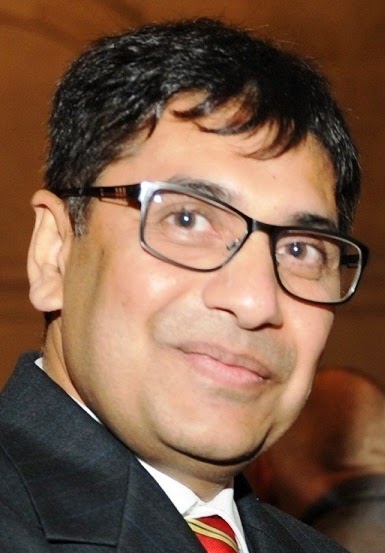NEET and Governance Failures: A Generational Crisis for Indian Youth
The National Eligibility cum Entrance Test (NEET), orchestrated by the National Testing Agency (NTA), stands as a pivotal moment for countless aspiring medical students across India. As the solitary gateway to undergraduate medical education, NEET’s execution and governance have laid bare systemic failures, casting shadows over the aspirations of our youth.
Governance Failures
The administration of NEET has been marred by a series of missteps, each echoing louder than the last. These lapses—ranging from delayed results to incorrect answer keys—undermine the very bedrock of trust in the examination process. The NTA, entrusted with this critical responsibility, must reckon with its lack of accountability and preparedness. Our students’ futures hang in the balance, and the credibility of India’s education system wavers.
Generational Impact
Beyond the immediate inconveniences, NEET’s shortcomings reverberate across an entire generation. The exam’s cutthroat competition and high-stakes nature have forged a culture of perpetual stress and anxiety. Mental health crises haunt our aspirants, their dreams weighed down by the relentless pursuit of perfection. The toll on young minds is palpable, hindering holistic growth and well-being.
Socioeconomic Disparities
NEET further widens the chasm of socioeconomic disparities. Expensive coaching centers, often the privilege of wealthier backgrounds, become the secret weapon for some. Meanwhile, students from marginalized communities grapple with barriers—financial, geographical, and emotional. This inequity perpetuates a cycle of disadvantage, stifling the potential of capable minds from diverse backgrounds.
Calls for Reform
Stakeholders raise their voices, demanding substantial reforms. The clarion call includes:
- Standardized Question Papers: Consistency ensures fairness.
- Logistical Precision: Timely conduct and efficient processes.
- Mental Health Support: We must weave resilience into the fabric of preparation.
NEET’s challenges mirror broader governance failures in Indian education. As our nation aspires to build a robust healthcare system, we must forge an equitable, efficient, and supportive pathway to medical education. Let us nurture our future healers, safeguarding their dreams amidst the tempests of bureaucracy.
NEET और शासन की विफलताएँ: भारतीय युवाओं के लिए एक पीढ़ीगत संकट
नेशनल एलिजिबिलिटी कम एंट्रेंस टेस्ट (NEET), जो राष्ट्रीय परीक्षण एजेंसी (NTA) द्वारा आयोजित किया जाता है, ने पूरे भारत में मेडिकल छात्रों की आकांक्षाओं पर गहरा प्रभाव डाला है। स्नातक चिकित्सा शिक्षा का एकमात्र प्रवेश द्वार होने के नाते, NEET के संचालन और शासन ने प्रणालीगत विफलताओं को उजागर किया है, जो भारतीय युवाओं के लिए गंभीर चिंताएँ उत्पन्न करती हैं।
शासन की विफलताएँ
NEET का प्रशासन कई कमियों से ग्रस्त रहा है, जो महत्वपूर्ण शासन मुद्दों को उजागर करता है। देरी से परिणाम, गलत उत्तर कुंजी, और तार्किक अक्षमताएँ इन विफलताओं का हिस्सा हैं, जो परीक्षा प्रक्रिया में विश्वास को कम करती हैं। ये समस्याएँ NTA में जवाबदेही और तैयारी की कमी की ओर इशारा करती हैं, जो छात्रों के भविष्य और भारत की शिक्षा प्रणाली की विश्वसनीयता को प्रभावित करती हैं।
पीढ़ीगत प्रभाव
NEET की कमियों के प्रभाव तात्कालिक असुविधाओं से परे हैं, जो छात्रों की पूरी पीढ़ी को प्रभावित करते हैं। परीक्षा की तीव्र प्रतिस्पर्धा और उच्च-दांव वाली प्रकृति ने तनाव और चिंता की संस्कृति को बढ़ावा दिया है, जिससे उम्मीदवारों में मानसिक स्वास्थ्य संकट आम हो गए हैं। यह वातावरण युवाओं पर अनुचित दबाव डालता है, उनके समग्र विकास और भलाई को बाधित करता है।
सामाजिक-आर्थिक असमानताएँ
NEET मौजूदा सामाजिक-आर्थिक असमानताओं को और बढ़ाता है। महंगे कोचिंग सेंटरों पर परीक्षा की तैयारी के लिए निर्भरता धनी पृष्ठभूमि के छात्रों को लाभ पहुँचाती है, जबकि हाशिए पर रहने वाले समुदायों के छात्रों को महत्वपूर्ण बाधाओं का सामना करना पड़ता है। संसाधनों तक पहुंच में यह असमानता एक नुकसान का चक्र कायम रखती है, जो विविध पृष्ठभूमि के सक्षम छात्रों के अवसरों को सीमित करती है।
सुधार की मांग
इन मुद्दों को हल करने के लिए, हितधारक NEET प्रणाली में महत्वपूर्ण सुधारों की मांग कर रहे हैं। सिफारिशों में प्रश्न पत्रों को मानकीकृत करना, तार्किक योजना में सुधार करना, और परीक्षा प्रक्रिया में निष्पक्षता सुनिश्चित करना शामिल है। इसके अलावा, मानसिक स्वास्थ्य समर्थन और तनाव प्रबंधन को तैयारी के चरण में एकीकृत करना एक स्वस्थ शिक्षण वातावरण को बढ़ावा देने के लिए महत्वपूर्ण है।
निष्कर्ष
NEET द्वारा उत्पन्न चुनौतियाँ भारतीय शिक्षा को प्रभावित करने वाली बड़ी शासन विफलताओं का प्रतीक हैं। जैसे ही राष्ट्र एक मजबूत स्वास्थ्य देखभाल प्रणाली का निर्माण करने का प्रयास करता है, यह सुनिश्चित करना अनिवार्य है कि चिकित्सा शिक्षा का मार्ग न्यायसंगत, कुशल और सहायक हो। इन प्रणालीगत मुद्दों का समाधान करके, भारत अपने भविष्य के चिकित्सा पेशेवरों को बेहतर ढंग से पोषित कर सकता है और अपने युवाओं की आकांक्षाओं की रक्षा कर सकता है।





Comments